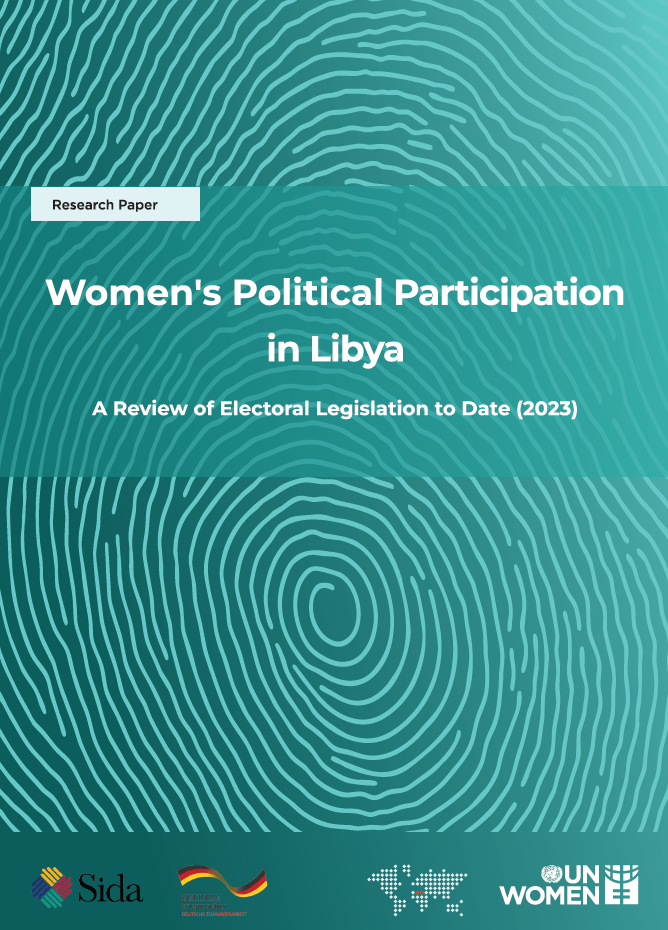
Women’s Political Participation in Libya: A Review of Electoral Legislation to Date (2023)

Libyan women gained the right to vote and to stand for elections in the 1963 parliamentary elections under The United Kingdom of Libya and the Sanusi Monarchy era. Libyan women gained suffrage through the constitutional amendment issued on 25 April, 1963. The amendment’s Article (102) of the 1951 constitution stipulates that: “Libyans who have completed their twenty-first year (Gregorian) shall be entitled to vote in the manner prescribed in the law. Women may exercise this right in accordance with the conditions provided for in the law.”
Law No. (6) of 1964 , which was endorsed by the Libyan Parliament, grants Libyan women the right to vote in parliamentary elections. Article 2 of the same law stipulates that: “A Libyan woman shall exercise the right to vote when she reaches the age referred to in the previous article, provided that she herself files a written request to get her name registered in the electoral records. “Thus, different standards were set for women voters versus male voters: women were required to register to vote whereas men were automatically enabled to vote by age 21.
Practically, Libyan women cast their vote in the 1964 elections. They had been required to attend in person for registration in the polling centres with their faces uncovered so that the registration officer (registrar) in each centre could identify them. That was the first time Libyan women actively participated in the electoral process and cast their votes.
As for the right to run for National Assembly elections, this right was limited to males only, as Article (5) of the law stipulated “The following conditions are required for anyone who nominates himself or is appointed to the National Assembly: A- He must be a Libyan male, and if he has acquired Libyan nationality through naturalization, he may not be nominated or appointed except after the expiration of the period stipulated in the Nationality Law…”.
Women’s right to stand for elections only became activated under Muammar Gaddafi (1969-2011). Under Gaddafi, a quasi-constitutional and legal legislation system better enshrined Libyan women’s right to political participation, including in the Great Green Charter of Human Rights (1977), The Promotion of Freedom Act (1993) and the laws of various Jamahiriya People's Congresses and People's Committees.
An important advance for women came with the three post-February 2011 elections, two of which were legislative elections and one of which was a constitutional election. The 2014 election was the last to be held. In 2021, the Libyan people were ready move forward and hold elections for an institutional step towards transition. However, the elections were aborted for several security and political reasons.
Since the writing of this review, the electoral process has registered some progress. where the 6+6 Committee has completed its work on electoral drafts of laws in early October 2023. The revised electoral laws were issued by the HoRs on October 5th and officially received by High National Elections Commission (HNEC) on October 9th.
This report is intended to monitor electoral laws that have been issued during the transition period in order to fully understand the degree to which they have been equitable for Libyan women and supportive of the exercise of their right to political participation.